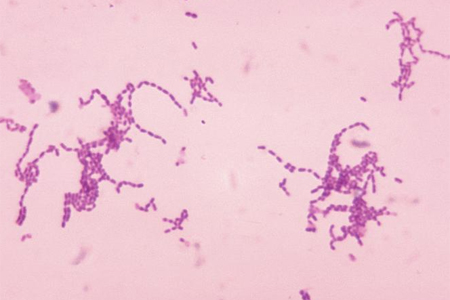Summary
Definition
History and exam
Key diagnostic factors
- presence of risk factors
- fever or low body temperature
- tachypnoea
- tachycardia
- bradycardia (neonates and infants)
- altered mental state or behaviour
- decreased peripheral perfusion
- change in usual pattern of activity or feeding in a neonate
- dry nappies/decreased urine output
- mottling of the skin, ashen appearance, cyanosis
- low oxygen saturation
- vasoplegia
- non-blanching purpuric rash
Other diagnostic factors
- hypotension
- specific focal signs and symptoms reflecting underlying pathology
Risk factors
- immunodeficiency
- comorbidities
- male sex
- younger age (especially neonates)
- perinatal risk factors for infection (neonates)
- healthcare-associated factors (neonates)
- recent surgery or other invasive procedures
- breached skin integrity
Diagnostic investigations
1st investigations to order
- FBC with differential
- serum glucose
- blood culture
- urinalysis
- urine culture
- blood gases
- serum lactate
- serum electrolytes
- serum creatinine
- LFTs
- coagulation studies
- C-reactive protein (CRP)
- chest x-ray
Investigations to consider
- lumbar puncture
- meningococcal polymerase chain reaction analysis
- bronchoalveolar lavage culture
- herpes simplex virus (HSV) polymerase chain reaction (blood and cerebrospinal fluid)
- CT chest
- Abdominal ultrasound
- Abdominal CT
Emerging tests
- serum procalcitonin
- emerging biomarkers
- PhenoTest™ BC Kit
Treatment algorithm
presumed or confirmed sepsis
Contributors
Authors
Akash Deep, MD, FRCPCH
Director and Professor of Paediatric Critical Care
Paediatric Intensive Care Unit
King’s College Hospital
London
UK
Disclosures
AD declares that he is an advisory board member for Mallonckrodt.
Chris Duncan, BMBS, BMedSci, MRCP, FFICM, FEWM, RMP, PGCert
ST7 Intensive Care Medicine
Barts Health NHS Trust
London
UK
Disclosures
CD declares that he has no competing interests.
Acknowledgements
Dr Akash Deep and Dr Chris Duncan would like to gratefully acknowledge Dr Jeremy Tong and Dr Adrian Plunkett, previous contributors to this topic.
Disclosures
JT and AP are authors involved in the Paediatric Sepsis Six initiative, cited in this topic.
Peer reviewers
Saul N. Faust, MA, MBBS, FRCPCH, PhD, FHEA
Professor of Paediatric Immunology & Infectious Diseases
Director, NIHR Wellcome Trust Clinical Research Facility
University of Southampton
Southampton
UK
Disclosures
SNF declares that he has no competing interests.
Mohan Pammi, MBBS, MD, MRCPCH
Assistant Professor
Texas Children's Hospital and Baylor College of Medicine
Houston
TX
Disclosures
MP declares that he has no competing interests.
Jerry J. Zimmerman, MD, PhD
Faculty, Pediatric Critical Care Medicine
Seattle Children's Hospital
University of Washington School of Medicine
Seattle
WA
Disclosures
JJZ receives research grant support from NIH/NICHD and ImmuneXpress; travel reimbursement from the Society of Critical Care Medicine to attend board meetings; and royalties from Elsevier for action as a co-editor for the textbook Pediatric Critical Care.
Peer reviewer acknowledgements
BMJ Best Practice topics are updated on a rolling basis in line with developments in evidence and guidance. The peer reviewers listed here have reviewed the content at least once during the history of the topic.
Disclosures
Peer reviewer affiliations and disclosures pertain to the time of the review.
References
Key articles
Goldstein B, Giroir B, Randolph A; International Consensus Conference on Pediatric Sepsis. International pediatric sepsis consensus conference: definitions for sepsis and organ dysfunction in pediatrics. Pediatr Crit Care Med. 2005 Jan;6(1):2-8. Abstract
Schlapbach LJ, Watson RS, Sorce LR, et al. International consensus criteria for pediatric sepsis and septic shock. JAMA. 2024 Feb 27;331(8):665-74. Abstract
Weiss SL, Peters MJ, Alhazzani W, et al. Surviving Sepsis Campaign international guidelines for the management of septic shock and sepsis-associated organ dysfunction in children. Pediatr Crit Care Med. 2020 Feb;21(2):e52-e106.Full text Abstract
National Institute for Health and Care Excellence. Suspected sepsis: recognition, diagnosis and early management. Mar 2024 [internet publication].Full text
Davis AL, Carcillo JA, Aneja RK, et al. American College of Critical Care Medicine clinical practice parameters for hemodynamic support of pediatric and neonatal septic shock. Crit Care Med. 2017 Jun;45(6):1061-93.Full text Abstract
Reference articles
A full list of sources referenced in this topic is available to users with access to all of BMJ Best Practice.

Differentials
- Coronavirus disease 2019 (COVID-19)
- Paediatric inflammatory multisystem syndrome
- Congenital heart disease
More DifferentialsGuidelines
- Suspected sepsis: recognition, diagnosis and early management
- Neonatal infection: antibiotics for prevention and treatment
More GuidelinesPatient information
Sepsis in children
Pneumococcal vaccine in babies and children
More Patient informationLog in or subscribe to access all of BMJ Best Practice
Use of this content is subject to our disclaimer
